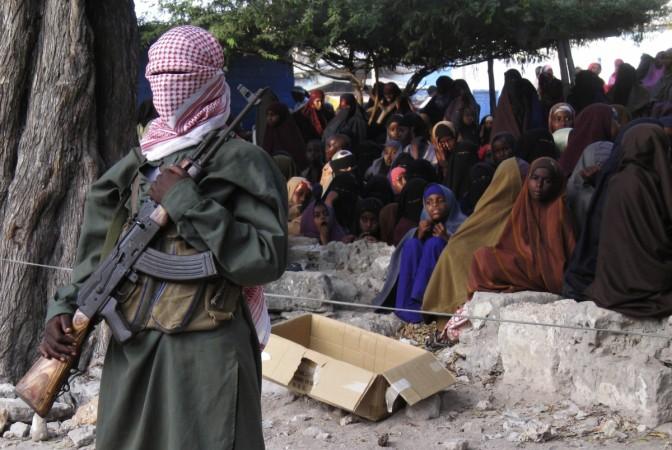
Al Qaeda-linked Somalian terrorist group al Shabaab has captured port Puntland in the African country Monday, governor of the Mudug region of Puntland said. The terrorist group reportedly threatened it would capture more ground and attack non-Muslims.
The group was pushed out of southern Somalia in 2015 after African Union force AMISOM and the Somali National Army launched a series of attacks. They were also under attack from the U.S. after the group killed scores of Kenyan soldiers stationed at El Adde, an AMISOM base. The AMISOM sources said last year that the group had moved to the regions of Puntland. However, the group has recaptured areas in the southern region in Somalia, Reuters reported.
"Al Shabaab fighters with several boats captured Garad town," Hassan Mohamed, governor for Mudug region of Puntland, told Reuters. "We do not want to say publicly how we will react." Meanwhile, head of the local body in Garad, Abdinur Abdullahi, said that al Shabaab met elder leaders in the area and said that they would "capture many places and fight non-Muslims."
The town of Garad in the past has been used to launch attacks by pirates on commercial vessels. A matter of concern at one point of time, countries from across the world have had to pay millions of dollars in the past to extricate crew and vessels from the clutches of pirates in Somalia. Multi-national naval efforts and greater security had reduced piracy in the region in 2012.
Harardhere, another town under al Shabaab control and once a den of pirates, was under curfew Sunday. However, residents reported that there was a flurry of activity at the port leading to speculation that the militant group was shipping weapons and foreign fighters.
Foreign fighters were allegedly also present in the meeting with the elders of Garad town, Reuters reported.
In 2014, attacks by pirates doubled as compared to 2013 worldwide, with Somalian pirates in the Horn of Africa being responsible for 11 attacks, the Telegraph reported. However, the figure was far lesser than those five years ago when Somali pirates were responsible for 200 such attacks.

















